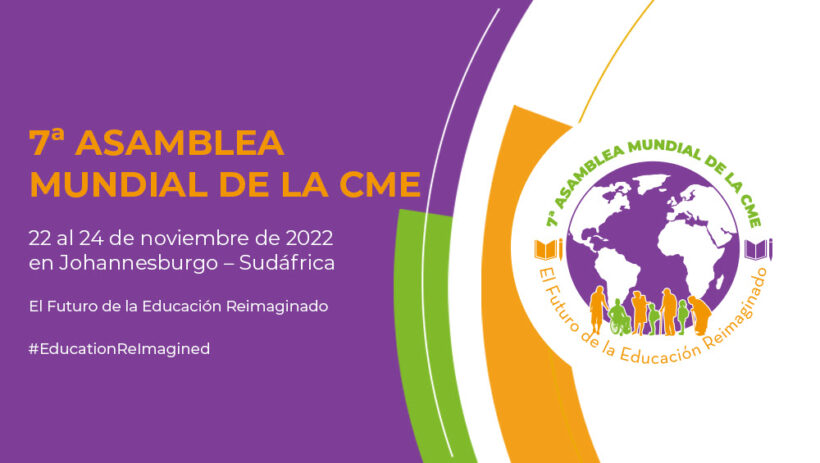23 years after its founding, the Global Campaign for Education (GCE) will hold its 7th World Assembly from 22-24 November 2022 in Johannesburg, South Africa. The largest civil society movement working to advance the right to free, inclusive and quality education for all is preparing to meet and renew its governance structures and deepen discussions on the obstacles, challenges and opportunities to overcome exclusion, discrimination and impoverishment in education around the world.
This 7th World Assembly will be the perfect setting to adopt innovative strategies in the political struggle that has been driving the movement for many years and to work on new forms of action to deepen its influence in all areas of education and beyond.
GCE brings together civil society organisations, networks and coalitions from nearly 130 countries and represents a diversity of actors, including youth and students, women, teachers, trade union leaders, activists, researchers and academics from around the world. GCE draws its greatest inspiration from this diversity, making it a global movement with proven legitimacy and impact.
The civil society perspective remains central to transforming education. The World Assembly is therefore an ideal space to discuss the changes needed to overcome the crises of violence and inequality that affect education, especially for people and communities that have been historically excluded and discriminated against for many years.
There is a need to expand dialogue on the role of the new governance mechanisms in which GCE participates, such as the High-Level Steering Committee of SDG4 – Education 2030, the Board of the Global Partnership for Education, and the High-Level Steering Group and Executive Committee of Education Cannot Wait, among others.
The 7th World Assembly will consist of discussion forums through which GCE will deepen discussions on crucial issues such as the global mobilisation for a new education financing compact and the urgent frameworks for gender transformation and inclusive education. These forums will also be a perfect opportunity to advocate for a new global agreement to counter the negative impact of privatisation of education and global governance. The negative impact of debt and regressive taxation has prevented low- and middle-income countries from securing adequate financing for education. Bringing the International Monetary Fund and the World Bank to the dialogue table will be a critical step that GCE will promote.
GCE will lead advocacy actions to restore the leading role of teachers and to strengthen the participation of youth and students in decision-making, including fighting all forms of discrimination and exclusion and seeking solutions to humanitarian crises, such as occupation, which nullify the right to education.
The 7th World Assembly will make proposals on how to explore ways to expand state accountability in education and lifelong learning, through the incorporation of advocacy dialogue on adult education and early childhood care and education. GCE believes that only a holistic approach can provide the basis for enhancing the impact of the Global Campaign for Education through actions that combine the accumulated experience of its diverse membership, including the voices of youth and learners, people with disabilities, sexually diverse communities and women, whose direction is leading the movement towards new struggles for the right to free, inclusive and quality education for all.
The winds of change are blowing strong, and the 7th World Assembly will set the strategic direction for members and partners to renew political decisions and actions towards a world of solidarity, justice, prosperity and peace.










